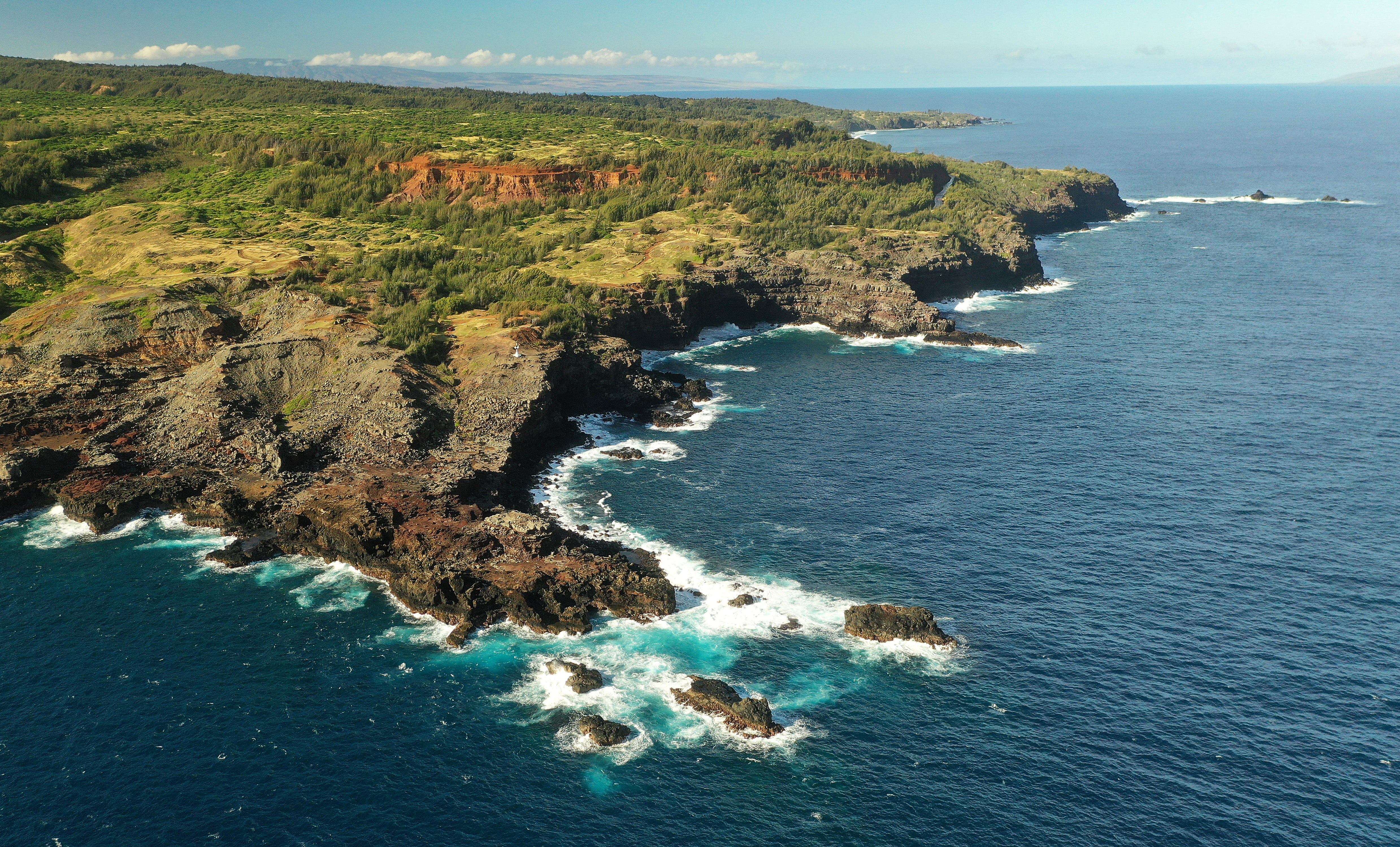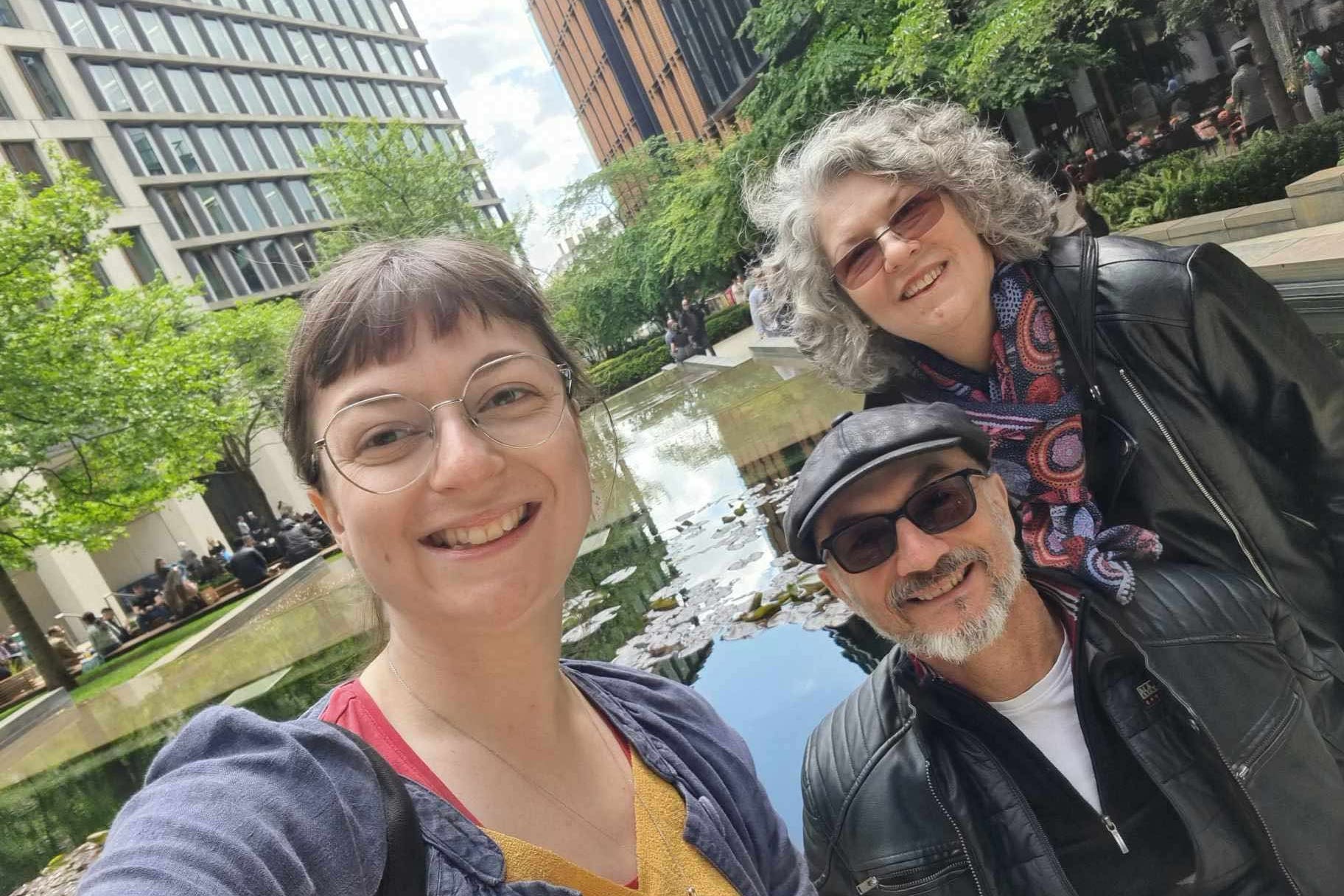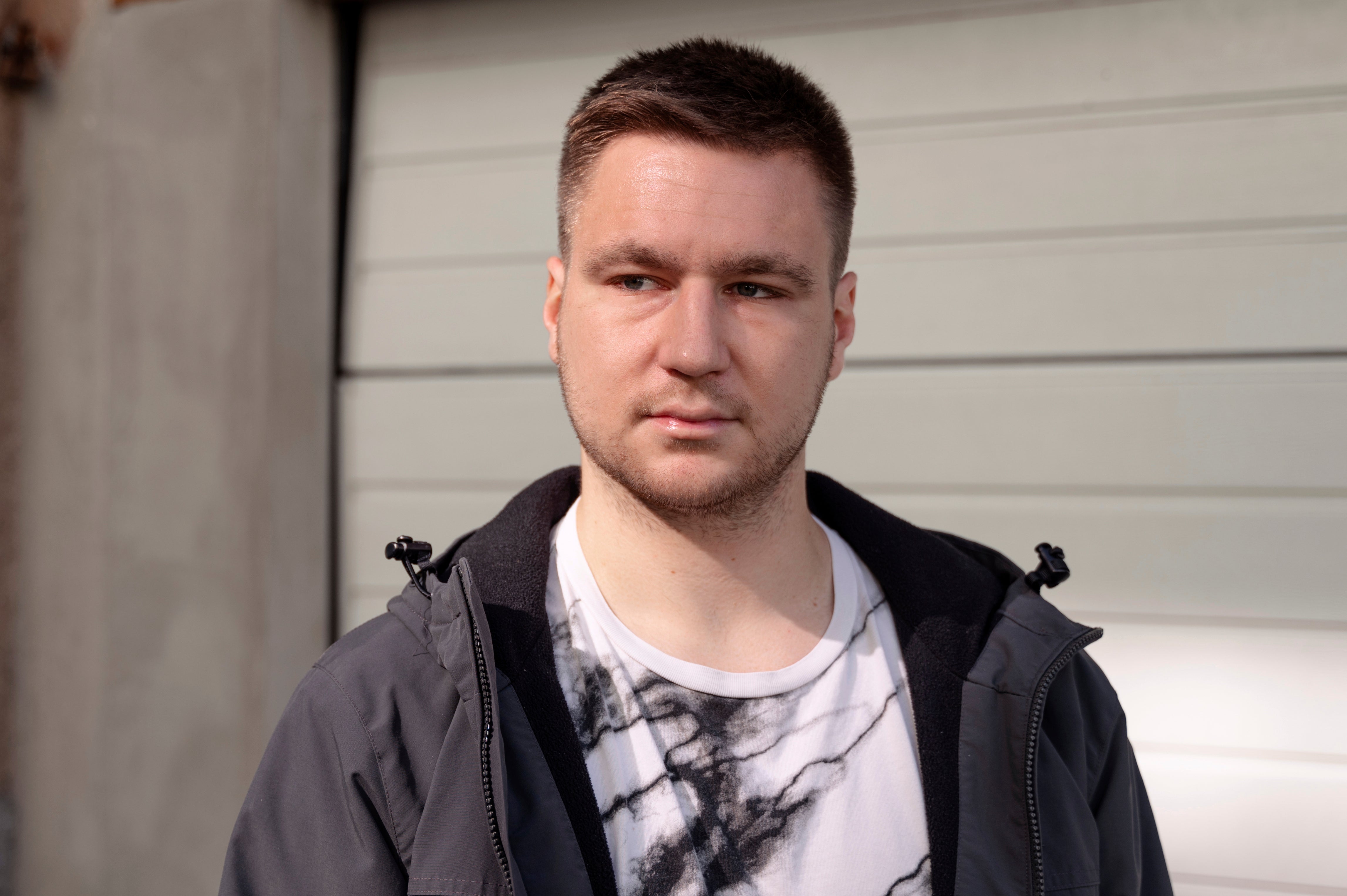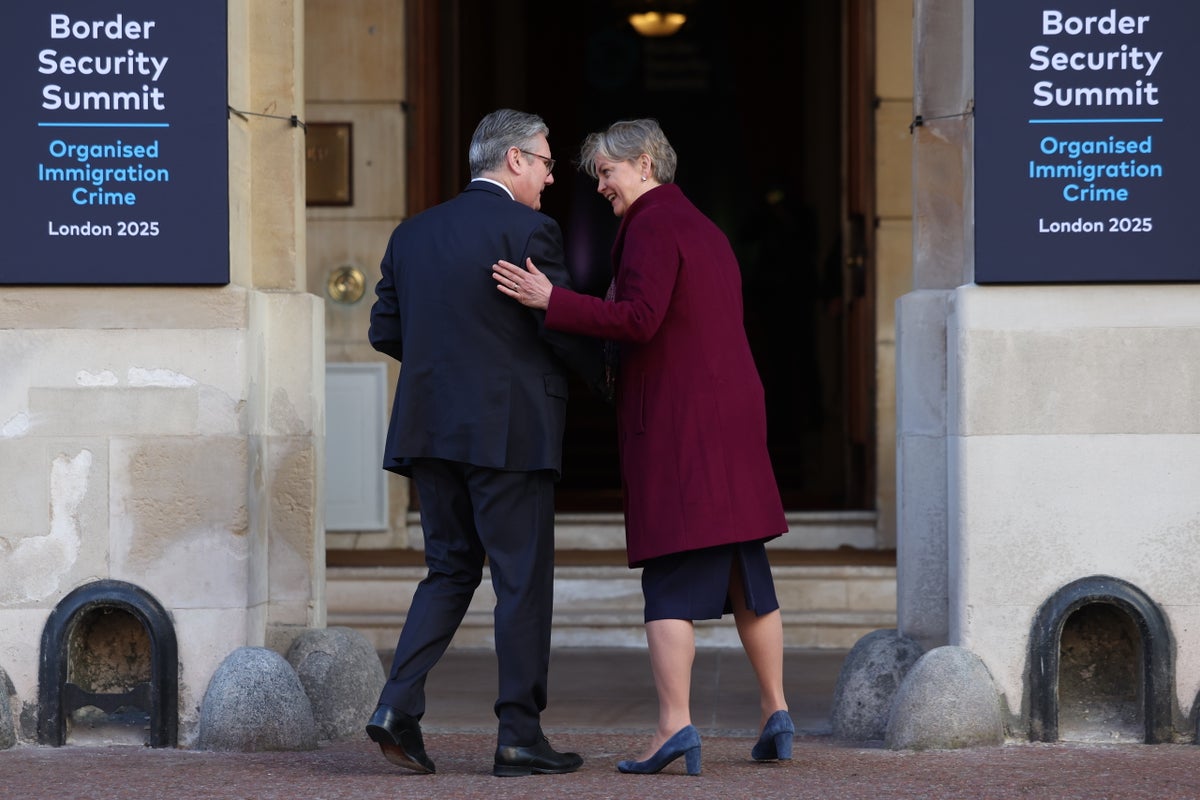ARTICLE AD BOX
Charlotte Pohl and Maria Lepère’s first night in Honolulu was not how they intended.
The jet-setting high school graduates from Rostock, Germany, had envisioned island-hopping across Hawaii before flying inland to California.
Instead, they woke up from their “fever dream” on a moldy mattress in a frigid, dilapidated cell, detained by authorities when they arrived at Honolulu airport and had attempted to go through U.S. customs.
Pohl and Lepère’s experience is one of several harrowing, high-profile accounts from tourists who have had their vacations derailed at the hands of border officials since Donald Trump's return to the White House in January.
Ever since the president promised to stage “the largest deportation operation in American history” earlier this year, international tourism to the U.S. has plummeted amid reports of detained tourists and travelers.
Total foreign visitors were down 12 percent year-on-year in March, according to the National Travel and Tourism Office, a division of the U.S. Department of Commerce. That drop marked one of the steepest declines on record outside of the Covid-19 pandemic.
Western European visitors experienced a 17 percent drop-off last month, spearheaded by fewer British and German visitors — 14 and 28 percent, respectively.
Here are some of the tourists that did try and visit — but instead had their American dreams dashed.
Charlotte Pohl, 19, and Maria Lepère, 18, from Germany
Pohl, 19, and Lepère, 18, were denied entry into the U.S. on March 18 despite holding the required documentation, including the electronic visa required by most visitors.
The teens said that they wanted to travel “spontaneously,” and subsequently hadn’t booked accommodation for the entirety of their five-week stint on the archipelago, Pohl told German newspaper Ostsee Zeitung.
U.S. Customs and Border Protection Assistant Commissioner Hilton Beckham countered this week that the tourists were “attempting to enter the U.S. under false pretenses,” and claimed they admitted they “intended to work” without the appropriate visas.
The travelers told the newspaper they were stripped and searched before being given prison garments to wear and locked in a double cell.
After three days detained, they returned to Rostock via Tokyo, Qatar, and Frankfurt am Main.
“We had already noticed a little bit of what was going on in the U.S. But at the time, we didn't think it was happening to Germans. That was perhaps very naive,” Lepère reflected.

For tourists like Pohl and Lepère, and others legally in the U.S. and subsequently removed, that so-called “privilege” was not afforded.
Rebecca Burke, 28, Wales
Welsh graphic artist Rebecca Burke was detained on February 26 after she embarked on “the trip of a lifetime” across North America.

The 28-year-old from Monmouthshire was reunited with her family this month after spending 19 days in a processing center after being denied entry at the border between the U.S. and Canada over a so-called visa mix-up.
Burke had been residing with host families in Portland, Oregon, whom she helped out with chores in exchange for her accomodation.
As she attempted to cross into Canada, border officials informed her that her living arrangements would mean she needed a work visa, not a tourist one.
She was sent back to the U.S. where American officials classed her as an illegal alien.
Burke was shackled and transported to an Immigration and Customs Enforcement detention center in Tacoma, Washington.
She was not allowed to fly home to the U.K. despite having the funds to pay for a plane ticket. Burke was detained while attempting to leave the U.S., not entering it.
As she was ushered to the plane before finally being flown back to Britain, her father told the BBC she had been taken in “leg chains, waist chains and handcuffs” like The Silence of the Lambs serial killer, “Hannibal Lecter.”
Lucas Sielaff, 25, Germany
German Lucas Sielaff spent more than two weeks at the Otay Mesa Detention Center, a prison in San Diego, California, after trying to cross the southern border from Tijuana in Mexico in February with his fiancée, Lennon Tyler, an American psychologist.

The couple, who were on vacation, allegedly drove to Tijuana for medical treatment for Dr. Tyler’s dog.
Tyler, who was handcuffed before being released, said she was chained to a bench and had her arms twisted by border agents, she told the New York Times.
Reportedly because of a language barrier, Sielaff, 25, got an answer wrong regarding where he lived as he attempted to re-enter the U.S. from Mexico.
The man said he shared a cell with eight other people and shared one microwave oven with 120 people to heat his food. He was eventually allowed voluntary deportation on a flight that cost him more than $2,700.
“Sometimes I just wake up because I have nightmares of this situation and what happened,” he told The Times. “And I just try to go for walks and calm down.”
Jessica Brösche, 29, Germany

A German tattoo artist spent more than six weeks also at the Otay Mesa Detention Center after officials believed that she was trying to illegally work in the U.S. At least eight days of her time in custody were reportedly spent in solitary confinement.
Jessica Brösche, 29, was on the trip with her American friend Nikita Lofving as a tourist under the ESTA visa waiver program when she attempted to cross the southern border into San Diego in late January.
Brösche was traveling with tattoo equipment, leading border officers to believe that she was trying to work unlawfully in the U.S., according to The Guardian. She is said to have planned to tattoo Lofving in exchange for some clothes.
“She says it was like a horror movie,” Lofving told ABC 10 News of her friend’s experience. “They were screaming in all different rooms. After nine days, she said she went so insane that she started punching the walls and then she’s got blood on her knuckles.”
Travelers are now avoiding heading to the U.S.
An Australian man was detained last month for eight hours in John F. Kennedy Airport after arriving in New York after a 24-hour flight from Sydney, via Hong Kong, according to the Sydney Morning Herald.
The traveler, who spoke to the newspaper on the condition of anonymity, said he intended to board a cruise in Florida but was questioned by border officials after taking what he described as a “very unusual route from Australia via Asia” for cheaper air fare.
After having his laptop and phone searched, the man said he was deported back to Australia, thousands of dollars out of pocket after his cruise line allegedly refused to refund him.
“I feel like returning to the US under the current administration would be the equivalent of going back for your hat after escaping a devastating house fire,” he said. “I have no wish to be burnt again.”
Stories of distressing detentions, stricter border controls and the Trump administration’s imperialistic rhetoric are seemingly only part of the puzzle.
Tourists also appear to be repelled by consequential changes in foreign diplomacy, not least the president attempting to foment a global trade war as he aggressively attempts to pursue his America First agenda.
When pressed on the “steep drop-off” of tourism in the U.S. in the Oval Office on Wednesday, Trump retorted: “It’s not a big deal.”
Two weeks earlier, Secretary of State Marco Rubio wrote in a Fox News op-ed that “visiting America is not an entitlement.”
“It is a privilege extended to those who respect our laws and values,” he added.









 English (US) ·
English (US) ·